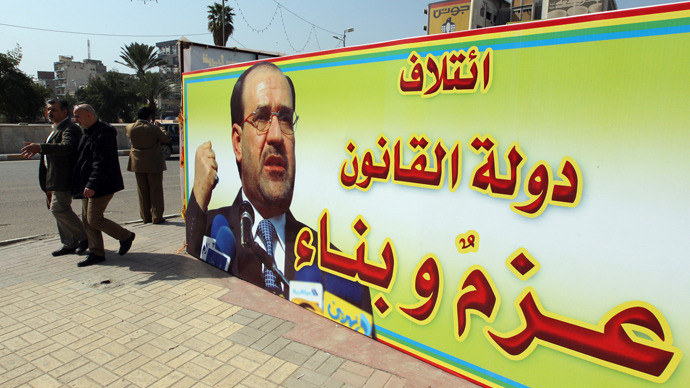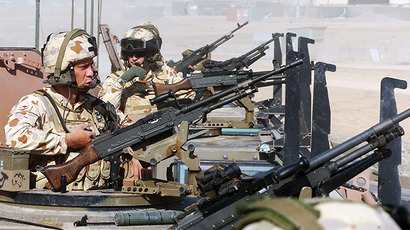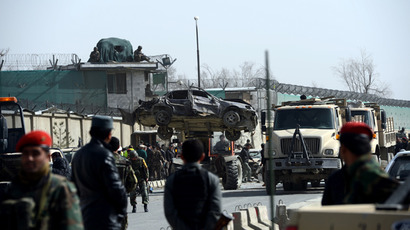Iraqi politicians killed in run-up to parliamentary polls

As Iraq prepares to host its first parliamentary elections in 3 years, deadly attacks on candidates are on the rise. Eleven politicians have already fallen prey to what has been branded an attempt to hijack the democratic process.
The latest bomb attack on Tuesday mangled an armor-plated car in
the troubled town of Tuz Khurmatu, killing two candidates and their
bodyguard. The death of council chief Abdulqadar Naimi and
councilor Rashid Khorshid brought the total number of politicians
killed to 11 in the run-up to Iraq’s April 20 parliamentary
elections, AP reported.
Kirkuk provincial governor Najim al-Din Omar Karim attributed
the latest attacks to a “terrorist operation” aimed at
disrupting the country’s democratic elections.
“They were targeting the democratic process, as we are close
to elections,” he told AP. He stressed that political and
ethnic rifts in Iraqi society were to blame, stating that “as
long as the problems continue, the terrorist groups will reflect
these differences by carrying out criminal activity.”
In response to the rising unrest, the Iraqi government has
postponed the electoral process in two large provinces. Ballots
will be held in a total of 12 of Iraq’s 18 provinces.
Last Tuesday, the Iraqi Cabinet deemed the provinces of Anbar
and Nineveh too dangerous to host elections. The proposed delay
could last up to six months, according to a spokesperson from the
Prime Minister’s office.
The decision to postpone was met with criticism amid claims the
delay has nothing to do with security concerns, and is in fact
motivated by political interests. Shiite leader Muqtada al-Sadr
publically spoke out against the postponement, decrying it as a
political ploy to prop up the current regime.
"Staying in the government is a sin and a fatal error,”
Muqtada said in a statement released on March 19. He added that
“this government has become more damaging than useful,” and
slammed the Iraqi parliament as “weak” and the judiciary
“politicized.”
Since the US-led NATO invasion to oust former leader Saddam
Hussein in 2003, Iraq has had several elections, the latest of
which was held in March 2010.
However, one decade after the ouster of the Hussein
dictatorship, some argue that Iraq still lacks the tools to hold
legitimate democratic elections. Tareq al-Maamuri, a lawyer and
political analyst, told AP that there was a “big problem”
with the electoral process in the country, the biggest of which was
a general lack of understanding of how to run a modern election
campaign.
"This has led to disrespected figures being elected into
office which has, in turn, eroded confidence in the electoral
process," al-Maamuri said. Candidates typically appeal to
similar tribal, ethnic or sectarian backgrounds during their
election campaigns, often playing off social rifts to win
popularity.
Iraqi officials blamed the attacks on al-Qaeda, and denounced
them for trying to sabotage the coming elections.
"Al-Qaeda has intensified its terrorist attacks on local
election candidates and balloting centers with the aim of making
the elections fail," Iraqi government media advisor Ali
al-Musawi told Mawtani.
Newly appointed Secretary of State John Kerry also rounded on
the Iraqi government’s decision to delay the provincial elections.
During a visit to the country earlier in March, he said that
Washington was not convinced by the given reasons for the move, and
encouraged Baghdad to reverse its decision.














